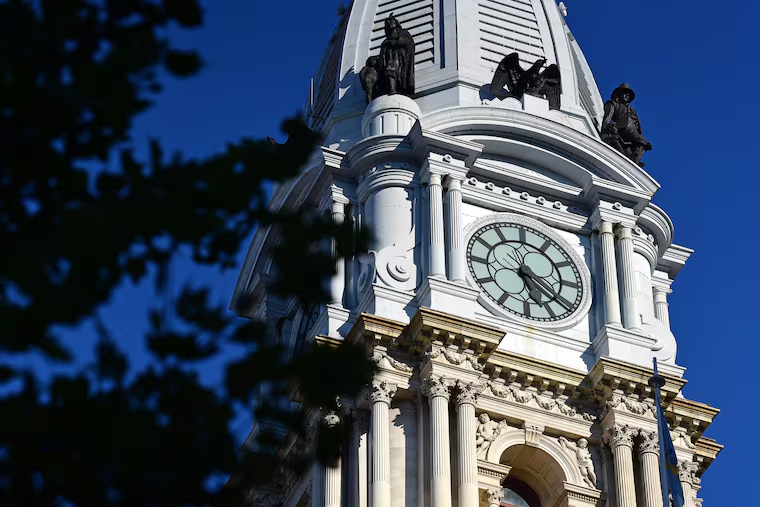Philadelphia is getting ready for the next recession
As some economists warn of a looming recession, Philadelphia officials are starting to prepare for shortfalls in tax revenue and budget cuts, even as the need for city services would increase.

As some economists warn of a looming recession, Philadelphia officials are starting to prepare for shortfalls in tax revenue and budget cuts even as the need for city services would increase.
Officials boast that the city made its first-ever deposit this summer to a rainy-day fund and also exceeded end-of-year surplus goals. The city’s annual financial report, released Monday, shows $439 million in leftover cash in the general fund at the end of the fiscal year.
But those reserves won’t suffice if a recession hits: $439 million would cover just 33 days of city expenses, officials said. Based on national best practices, the city should have a fund balance of about $821 million.
“Even though we’ve been making great progress … we’re really trying to get our hands around what is going to be the scale of the problem, or what are the possible scenarios we might face in the next recession,” city budget director Marisa Waxman said.
In an August survey by the National Association for Business Economists, a majority of economists said the United States will enter the next recession by the end of 2021; 38% predicted it would begin in 2020, and 34% said it would begin in 2021.
The state board that oversees Philadelphia’s budget thinks that the city should have begun planning for a recession earlier. The Pennsylvania Intergovernmental Cooperation Authority (PICA) expressed concern about a recession when it approved the city’s five-year spending plan in July, noting that the plan did not account for the possibility of a significant hit to revenue.
Waxman acknowledged Friday that recent “back of the envelope” math by the budget office indicates that an economic slowdown — even if not as severe as the Great Recession — would have a significant impact on the city. Officials have mapped out what might happen if revenue grows by half as much as anticipated in the next five years, if revenue stops growing after the current fiscal year, and if revenue begins to decline.
“In all but the mildest scenario, by [fiscal year 2022] we could see our fund balance go negative,” she said.
Philadelphia is especially vulnerable in economic downturns because the wage tax is the city’s largest revenue source, and that can decline quickly when a recession affects jobs. The business income and receipts tax, also a major source of city revenue, is also vulnerable. Other municipalities rely more heavily on property taxes.
Because it’s possible that an economic downturn could begin during the next fiscal year, Waxman said she will begin asking departments to identify potential budget cuts. Officials are consulting experts and studying past recessions to help make predictions.
“And when we’re thinking about the scale of those pullbacks, what we want to make is that those are grounded in what we think might actually happen,” she said.
Officials said it’s too soon to determine whether cutbacks will be included in the fiscal 2021 budget that Mayor Jim Kenney — who is widely expected to win a second term in November — will present to City Council in March. But the city will work on making predictions and plans for different lengths and depths of a future recession, Waxman said.
Some city departments, however, would need increased funding during a recession. If unemployment in Philadelphia rises from 5.2% to 9.7%, as it did in 2009, the Office of Homeless Services would need at least $20 million more, the Department of Human Services would need an additional $41 million, and the Department of Public Health would need an added $55 million. Those estimates assume that there would be no cutbacks in state or federal funding, which might not be the case if a recession hits. Almost a quarter of Philadelphians are living in poverty.
The cuts to city services made during the Great Recession are still being restored, Finance Director Rob Dubow said, and it took a decade to return the city’s fund balance to pre-2008 levels. Economists do not predict that the next recession would be as severe as the last one, Dubow said, but being able to plan ahead is still important.
“There are a whole bunch of reasons why you need a high fund balance,” he said. "And one of those is to prepare for things like a recession.”